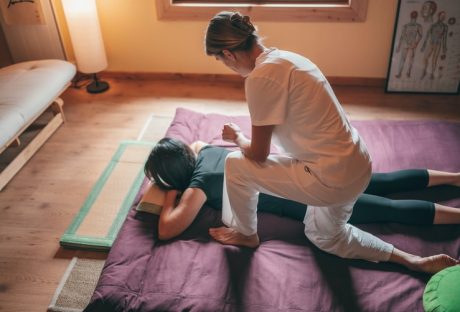Summer 2019 is in full swing, which means hot days and warm nights. Temperature & Sleep has a close relationship with one another. While a nice sunny day is something that can be easily enjoyed in the shade and under an umbrella, sleeping in a room that is too hot at night is extremely uncomfortable and may affect your sleep! Below is some interesting information about how temperature affects your sleep.
Assuming you’re a living, breathing human like me, your body temperature is higher during the day and then declines at night. The innate ability of your body to control internal temperature is through a process called “thermoregulation.” As you get ready to sleep, your body starts to cool down through this process. The process of cooling starts around 2:00 PM to prepare you for sleep and around 5:00 AM is the lowest body temperature your body will reach. Temperature & Sleep has a close relationship with one another.
A cooler temperature is associated with sleep, while a higher temperature is wakefulness. This is super counterintuitive but even though you may feel like a slug in a warm environment, you could be able to actually get to sleep better in a cooler environment because our bodies cool down during the dream state. Keeping your body’s internal temperature lower while sleeping has been shown to support a longer and deeper quality of sleep. Cool temperature & sleep are co-related with one another.
Your body starts to work overtime to cool itself when it becomes too hot. This is because the body associates heat with activity. Increased body temperature will alert your internal clock to be more awake and alert which disrupts all stages of REM sleep. Oppositely, cold comfort may deliver a better sleep. This is due to the fact that your body will be able to lower its internal temperature early in the sleep cycle. So you may want to think twice before you load up with all those comfy and fluffy blankets that we all love so much!
Research shows that 60 to 65 degrees is the ideal sleeping temperature and anything higher or lower than this ideal range can make it more difficult to fall and stay asleep. Additionally, varying temperatures outside of the ideal sleeping temperature seem to cause our bodies to struggle to reach the ideal body temperature for sleep. A Dutch study from 2008 evaluated this phenomenon by hooking up participants to thermostats and found that very small changes in temperature could prove useful to manage disturbed sleeping patterns. The benefits of sleeping in a cool room include falling asleep quickly, promoting anti-aging, and reducing stress levels. Cold bedrooms can promote the increase in melatonin, which regulates all of the body and governs many of the body’s immune, cardiovascular, microbiome, metabolic, psychological, and detox functions.
In order to catch the best and most restful snooze, you might need to send the right messages to your body that it’s time to go to sleep by keeping a cool environment in the hours that lead up to sleep. Try out some of the following simple solutions to prepare yourself for a nice night’s sleep:
- Try to allow your body time to adjust and prepare for sleep. Make sure you give your body two to three hours before bed to start to cool down. A hot shower seems to be ideal when taken two to three hours before bed.
- Make a good investment in your bed, fur blanket, and be sure to keep it clean. Natural materials are best and are most likely to keep you comfortable.
- Make sure you keep your hands and feet warm.
- Keep your bedroom at roughly 65 degrees.
In addition, there are several wonderful sleep gadgets out there to help make sure your bedroom is an oasis and you’re ready for sleep. Check out this article to learn more about various sleep gadgets that may be able to help regulate your bed temperature. Gadgets could be a great way to start improving other aspects of your sleep that you may be experiencing trouble with!
So all in all, Summer 2019 might be about catching some rays and working up a sweat on the beach, but once you get back inside starting to cool off for the rest of the night might be your best bet to feel refreshed and energized for the next day. It seems as though the temperature has an important effect on sleep. Try to take a look back at your most recent sleeping patterns and see if your rest is being disturbed by the temperature of your room. Perhaps start a Temperature & sleep journal to keep track by writing a blog entry about your last sleep in the morning. We all could use a better-shut eye at the end of the day!
Read Also:






















